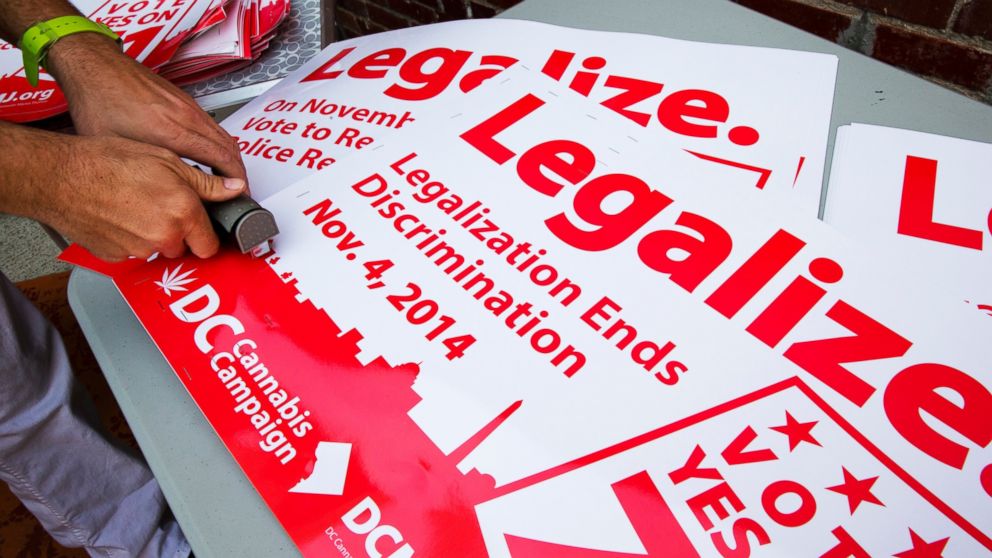Lawmakers Urge Green Light to Weed in DC
Congress to allow DC's ballot-passed pot initiative to stand.

— -- In the wake of a midterm election where marijuana laws were further weakened across the country, Rep. Eleanor Holmes Norton called on Congress today to allow the Washington's ballot-passed pot initiative to stand.
The District now faces threats from Congress to overturn Initiative 71, which overwhelmingly passed by a 2-1 margin.
“I particularly ask the 23 Senators who represent states that have passed medical marijuana laws, the 18 states that have passed marijuana decriminalization laws, and the 4 states and the District of Columbia that have legalized marijuana to give the District the benefit of the doubt that federal authorities have given your states,” Norton, D-DC, said.
In a joint display of advocacy, Norton was joined by three representatives whose states have also reformed marijuana laws, including Reps. Earl Blumenauer, D-Ore., Jared Polis, D-Colo., and Dana Rohrabacher, R-Calif.
She also thanked Sen. Rand Paul, R-Ky., for expressing that the District should be able to make its own law without federal interference.
Norton added that she was not encouraging people to use marijuana, but rather that there was no basis for federal conviction. She pointed to studies showing nine out of ten convicted for marijuana are African Americans, and the racial disparities are nationwide.
Rohrabacher pointed out a nation change in the legalization debate and called on other congressional Republicans to “wake up” and revert to the party’s fundamental principles of limited government and states’ rights. He said it would be “sinful” for states to intercede on the legalization of medical marijuana, which California allows.
Since legalizing marijuana for recreational use in Colorado two years ago, Polis said it’s had a positive impact on the state, with tens of millions of dollars in tax revenue coming in. He also noted that teenage and underage use of marijuana is down five percent.
Oregon’s vote last week to legalize marijuana passed by a greater margin in a non-presidential election than Washington and Colorado did in 2012. But Blumenauer said legalization in one state could be the tipping point for the rest of the country.
“California is the big kahuna,” Blumenauer said. “California passing this is likely to open the flood gates…and everything I've heard is that people are encouraged by what just happened and they're ready to go.”
ABC's John Parkinson contributed to this report.




